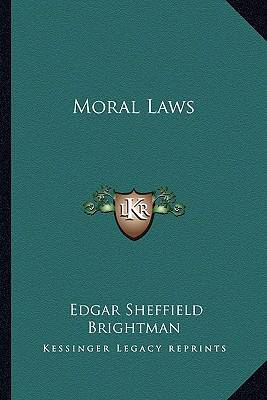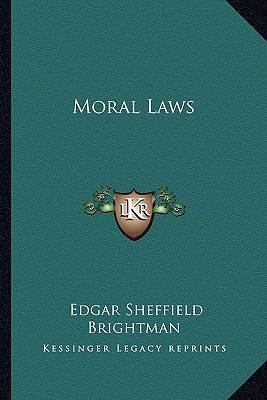
- Retrait gratuit dans votre magasin Club
- 7.000.000 titres dans notre catalogue
- Payer en toute sécurité
- Toujours un magasin près de chez vous
- Retrait gratuit dans votre magasin Club
- 7.000.0000 titres dans notre catalogue
- Payer en toute sécurité
- Toujours un magasin près de chez vous
Description
Moral Laws is a philosophical treatise written by Edgar Sheffield Brightman, an American philosopher and theologian. Published in 1930, the book explores the nature of moral laws and their relationship to human behavior and society. The book is divided into two main sections. The first section provides an overview of the concept of moral laws, including their origins, universality, and role in guiding human behavior. Brightman argues that moral laws are not arbitrary rules imposed by external authorities, but rather are inherent in the nature of human beings and their relationships with one another. The second section of the book focuses on the practical applications of moral laws in various areas of human life, including politics, economics, and personal relationships. Brightman argues that adherence to moral laws is essential for the well-being of individuals and society as a whole, and that violations of these laws can have serious consequences. Throughout the book, Brightman draws on a wide range of philosophical and theological sources, including the works of Immanuel Kant, Friedrich Nietzsche, and Saint Augustine. He also incorporates insights from psychology, sociology, and other social sciences to provide a comprehensive and nuanced analysis of the nature and importance of moral laws. Overall, Moral Laws is a thought-provoking and insightful exploration of one of the most fundamental aspects of human existence. It offers a compelling argument for the centrality of moral laws in human life and provides a valuable framework for understanding and navigating the complex moral challenges of the modern world.This scarce antiquarian book is a facsimile reprint of the old original and may contain some imperfections such as library marks and notations. Because we believe this work is culturally important, we have made it available as part of our commitment for protecting, preserving, and promoting the world's literature in affordable, high quality, modern editions, that are true to their original work.
Spécifications
Parties prenantes
- Auteur(s) :
- Editeur:
Contenu
- Nombre de pages :
- 324
- Langue:
- Anglais
Caractéristiques
- EAN:
- 9781163170458
- Date de parution :
- 10-09-10
- Format:
- Livre broché
- Format numérique:
- Trade paperback (VS)
- Dimensions :
- 152 mm x 229 mm
- Poids :
- 435 g

Les avis
Nous publions uniquement les avis qui respectent les conditions requises. Consultez nos conditions pour les avis.






